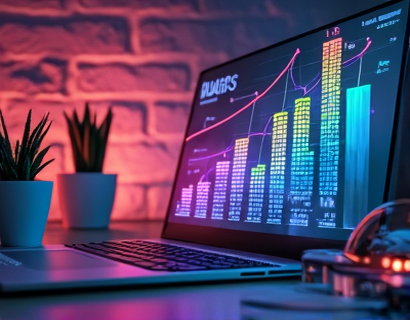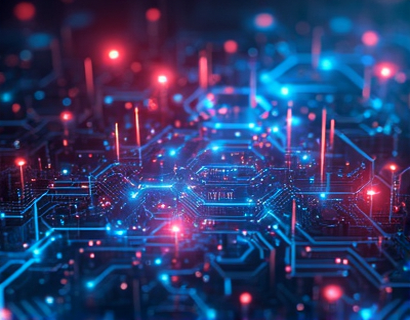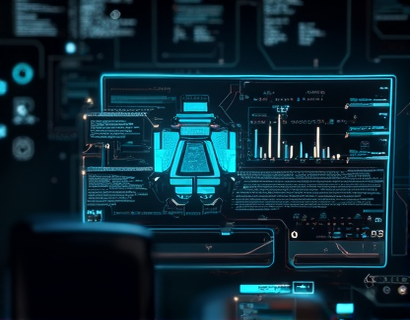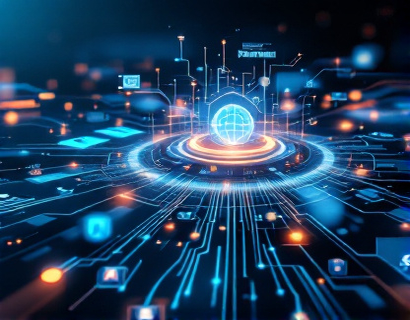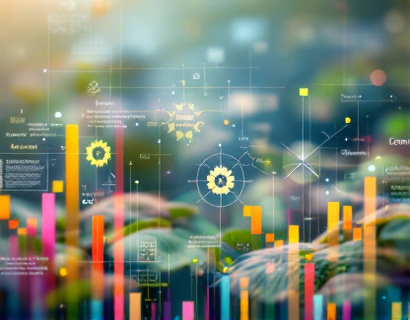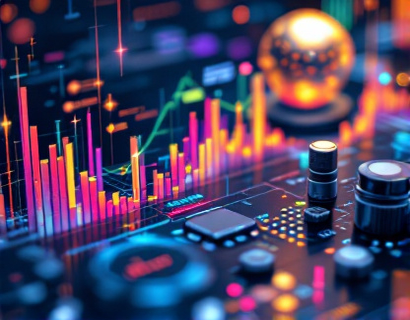AI and Crypto: Pioneering Next-Gen Productivity through Innovative Digital Solutions
The intersection of artificial intelligence (AI) and cryptocurrency is giving birth to a new era of digital solutions that promise to revolutionize productivity and workflow for tech innovators and early adopters. This fusion of technologies is not just a trend but a transformative force that is reshaping how we approach daily tasks and complex problems. As we delve into this topic, it's essential to understand the foundational elements of both AI and cryptocurrency and how their integration is leading to groundbreaking applications.
Artificial intelligence, a subset of computer science, focuses on creating systems that can perform tasks requiring human intelligence, such as learning, reasoning, and self-correction. AI technologies include machine learning, natural language processing, computer vision, and robotics. These technologies have advanced significantly in recent years, thanks to increased computational power, larger datasets, and more sophisticated algorithms. The result is AI systems that can automate routine tasks, provide insights from vast amounts of data, and even create content that rivals human creativity.
Cryptocurrency, on the other hand, is a digital or virtual currency that uses cryptography for security and operates on a decentralized network, typically a blockchain. Bitcoin, launched in 2009, was the first and most well-known cryptocurrency, but since then, thousands of alternative coins (altcoins) and tokens have emerged, each with unique features and use cases. Cryptocurrencies are not controlled by any central authority, which makes them resistant to government interference and potential censorship. This decentralized nature also fosters innovation, as developers can build on existing blockchain technologies to create new applications and services.
The convergence of AI and cryptocurrency is creating a synergy that enhances the capabilities of both fields. AI can optimize blockchain networks, improve transaction processing, and enhance security measures. Conversely, the decentralized and secure nature of cryptocurrency provides a robust foundation for AI applications that require trust and transparency. This synergy is giving rise to innovative digital solutions that are redefining productivity and workflow in various industries.
Enhancing Workflow with AI-Powered Crypto Tools
One of the most significant impacts of AI and cryptocurrency is in the realm of workflow optimization. Traditional workflows often involve multiple steps, each requiring manual intervention, which can be time-consuming and prone to errors. AI-powered crypto tools are streamlining these processes, making them more efficient and reliable.
For instance, smart contracts, self-executing contracts with the terms directly written into code, can automate and enforce agreements without the need for intermediaries. When combined with AI, smart contracts can adapt to changing conditions and execute complex logic, ensuring that transactions are processed accurately and promptly. This reduces the need for manual oversight and speeds up business operations.
Another area where AI and cryptocurrency are making waves is in the management of digital assets. Crypto assets, such as NFTs (non-fungible tokens), require meticulous tracking and management. AI algorithms can monitor these assets in real-time, providing insights into market trends, ownership history, and potential risks. This level of oversight is crucial for investors and businesses looking to leverage crypto assets effectively.
Improving Data Security and Privacy
Data security and privacy are paramount in today's digital landscape, and the combination of AI and cryptocurrency offers robust solutions. Blockchain technology, the backbone of cryptocurrency, inherently provides a high level of security through its decentralized and immutable ledger. AI can further enhance this security by detecting and mitigating threats in real-time.
Machine learning models can analyze patterns in blockchain data to identify anomalies that may indicate a security breach. These models can be trained to recognize suspicious activities and automatically trigger alerts or countermeasures. This proactive approach to security is particularly valuable for businesses handling sensitive information, such as financial institutions and healthcare providers.
Privacy is another critical aspect where AI and cryptocurrency intersect. Cryptocurrencies like Monero and Zcash use advanced cryptographic techniques to ensure transaction anonymity. AI can enhance this privacy by developing more sophisticated methods to obfuscate transaction data while maintaining compliance with regulatory requirements. This ensures that users can transact securely and privately, without compromising on transparency when needed.
Boosting Productivity with AI-Driven Crypto Applications
The integration of AI and cryptocurrency is not only about security and workflow optimization; it's also about creating tools that boost productivity across various domains. AI-driven crypto applications are emerging to assist professionals in managing their tasks more efficiently and making data-driven decisions.
One such application is AI-powered crypto trading platforms. These platforms use machine learning algorithms to analyze market data, identify trends, and make predictive insights. Traders can leverage these insights to make informed decisions, reducing the risk of human error and increasing the potential for profitable trades. The automation of trading strategies further enhances productivity, allowing traders to focus on higher-level decision-making.
Another productivity-boosting tool is AI-assisted crypto portfolio management. These tools use AI to optimize asset allocation, rebalance portfolios, and provide real-time performance analytics. By automating these tasks, users can save time and ensure their crypto investments are managed effectively. AI can also help in tax optimization by tracking transactions and generating accurate reports, simplifying the tax filing process.
Enhancing User Experience through Personalization
Personalization is a key factor in enhancing user experience, and the combination of AI and cryptocurrency is delivering tailored solutions to meet individual needs. AI algorithms can analyze user behavior and preferences to provide customized recommendations and services.
In the context of cryptocurrency, AI can personalize the user interface and features of crypto wallets and trading platforms. For example, a crypto wallet could adapt its display based on the user's interaction history, highlighting frequently used functions and providing context-specific tips. This level of personalization makes the technology more accessible and user-friendly, encouraging broader adoption.
AI can also enhance customer support in crypto-related services. Chatbots powered by natural language processing can provide instant assistance, answering common queries and guiding users through complex processes. This not only improves user satisfaction but also reduces the workload on human support teams, allowing them to focus on more critical tasks.
Challenges and Considerations
While the fusion of AI and cryptocurrency offers numerous benefits, it also presents challenges that need to be addressed. One of the primary concerns is the regulatory landscape. Cryptocurrencies are still navigating a complex web of regulations across different jurisdictions, and the integration of AI adds another layer of complexity. Ensuring compliance with evolving regulations is crucial for the sustainable growth of these technologies.
Another challenge is the technical barrier. Both AI and cryptocurrency involve advanced concepts that can be difficult for the average user to understand and adopt. User education and intuitive design are essential to overcome this hurdle. Developers must create interfaces that are accessible and provide clear guidance to users, making the technology more approachable.
Security remains a top priority, even with the enhanced measures provided by AI. While AI can detect and mitigate threats, it is not infallible. Continuous monitoring and updating of security protocols are necessary to stay ahead of emerging risks. Users must also be educated about best practices to protect their assets and data.
Future Prospects
The future of AI and cryptocurrency is bright, with numerous opportunities for innovation and growth. As technology advances, we can expect more sophisticated AI algorithms that can handle even more complex tasks within the crypto ecosystem. The development of decentralized AI models, where AI computations are distributed across the blockchain network, could further enhance security and efficiency.
Interoperability between different blockchain platforms and AI systems will also play a crucial role in the widespread adoption of these technologies. Standards and protocols that enable seamless integration will facilitate the creation of more comprehensive and versatile applications. This could lead to a more interconnected digital landscape where AI and cryptocurrency work hand in hand to solve a wide range of problems.
In conclusion, the fusion of AI and cryptocurrency is paving the way for a new generation of digital solutions that enhance productivity and redefine workflows. By leveraging the strengths of both technologies, we can create more secure, efficient, and user-friendly applications that cater to the needs of tech innovators and early adopters. As we continue to explore this exciting frontier, the potential for transformation is immense.



